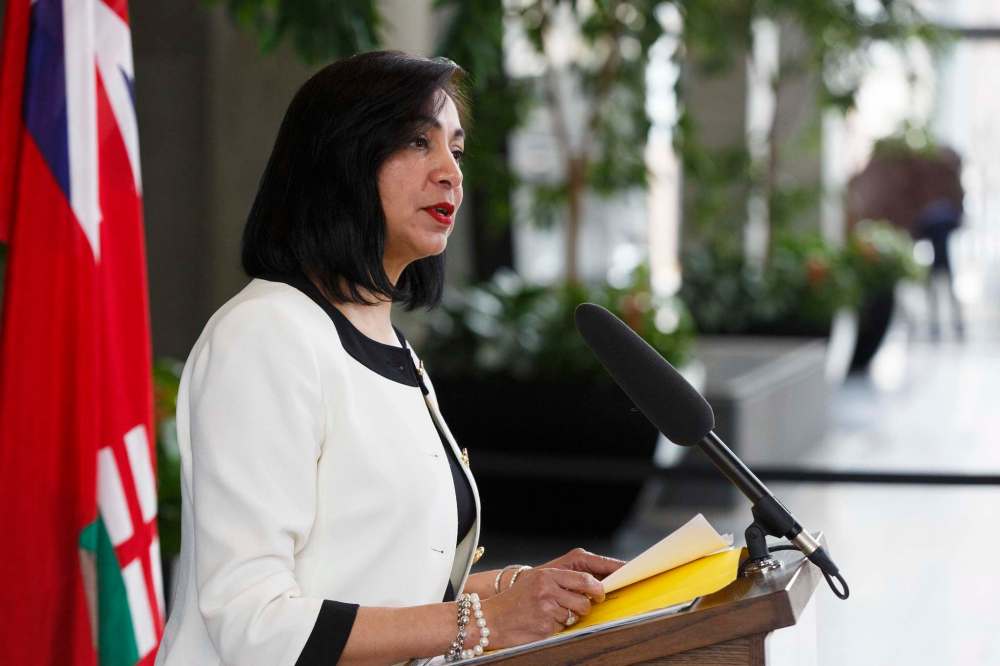Manitoba Hydro International goes in-house
Global consulting wing to be wound down; future of telecom unit on hold
Advertisement
Read this article for free:
or
Already have an account? Log in here »
To continue reading, please subscribe:
Monthly Digital Subscription
$1 per week for 24 weeks*
- Enjoy unlimited reading on winnipegfreepress.com
- Read the E-Edition, our digital replica newspaper
- Access News Break, our award-winning app
- Play interactive puzzles
*Billed as $4 plus GST every four weeks. Offer only available to new and qualified returning subscribers. Cancel any time.
Read unlimited articles for free today:
or
Already have an account? Log in here »
Hey there, time traveller!
This article was published 17/02/2021 (1444 days ago), so information in it may no longer be current.
The reorganization of Manitoba Hydro has finally been announced, lifting the suspended animation that its 100 employees have lived under for the past six months.
Manitoba Hydro CEO Jay Grewal announced the subsidiary will be brought in-house and all units will continue operating except for its international consultancy, which will be wound down when all existing contractual obligations are met, which could take as long as five years for some contracts.
All permanent MHI staff will be offered employment at Manitoba Hydro.

As well, the Manitoba Hydro Telecom unit’s future will not be determined until a provincial government request for proposal process for third-party management of Hydro’s rural broadband infrastructure has been finalized.
In July, word started leaking out that MHI — including its Manitoba Hydro Telecom unit — was not taking on any new business.
That “stop sell” order became public in September. Originally it was to last until October, but was subsequently extended indefinitely.
In a live call with all the remaining employees of MHI — about 35 have left the enterprise in the last few months — Grewal apologized that process dragged on as long as it did.
In an interview with the Free Press, she said a major review of Manitoba Hydro’s operation led to a deep dive into MHI’s operations and then management’s ability to analyze the results was severely constrained by the numerous challenges thrown at it by the COVID pandemic, including designing new operating protocols and keeping construction of the Keeyask generation station on track.
“Absolutely it took longer than we would have liked,” she said. “Ideally we would have done this work and been able to engage with employees at MHI once we had a view to where we were headed. It did not play out that way.”
There are about 10 full-time employees engaged in international consulting work and an unknown number who work with Manitoba Hydro Telecom.
While Grewal sincerely expressed the commitment to treat employees fairly, a deep attitude of antipathy toward the parent company had set in, according to background conversations.
Some employees have started discussions with the Manitoba auditor general’s office about what they feel is unfair treatment.
Grewal said she could not comment about investigations the auditor general’s office may, or may not, be conducting, but she said, “I had a conversation with the auditor general. We were very transparent and we spoke broadly about what we are doing and how we are approaching MHI. It was a positive and productive conversation.”
Some staff who spoke on condition that their names not be used expressed relief mixed with some skepticism.
“If you take it at face value this is not the most horrible thing,” said one employee. “We all assumed it would be the worst-case scenario that MHI would be shut down and we’d all lose our jobs. The fact that we have some snippet of hope… of permanent employment is a step up from where we were sitting previously.”
But the person said people still have to apply for positions and there is still a concern there won’t be an appropriate skills alignment to land work.
Adrien Sala, the NDP’s Manitoba Hydro critic, said the move was “privatization by another name.”
He said wiping out the international work — that he said made more than $80 million for the Crown corporation over the years — will put pressure on Hydro costs for its Manitoba customers and that those experienced consultants will probably now go work outside Manitoba.
“Overall it is not a great day for Manitoba ratepayers,” he said.
As for the fate of Manitoba Hydro Telecom, Grewal said she could not comment on the provincial RFP, but said that it would likely be concluded in the “coming months.”
David MacKay, the head of the Coalition of Manitoba Internet Service Providers, said he believes the telecom RFP is closer to resolution than that.
“Today’s (Tuesday’s) announcement is inextricably linked to the RFP final announcement which we believe is imminent. You would not have today’s announcement without having that lined up as well,” he said.
MacKay said he expects news on the RFP within a week or two.
Work has been embargoed at MHT — which owns a broadband network that serves as an integral backbone for broadband development throughout rural Manitoba — since August. MacKay said that has caused serious hardship for many communities where the COVID pandemic has exacerbated the need those communities have for much faster download speeds.
“It’s causing a paralysis across the entire ISP (internet service provider) sector in terms of new development and also maintaining existing network operations,” he said.
martin.cash@freepress.mb.ca

Martin Cash
Reporter
Martin Cash has been writing a column and business news at the Free Press since 1989. Over those years he’s written through a number of business cycles and the rise and fall (and rise) in fortunes of many local businesses.
Our newsroom depends on a growing audience of readers to power our journalism. If you are not a paid reader, please consider becoming a subscriber.
Our newsroom depends on its audience of readers to power our journalism. Thank you for your support.


